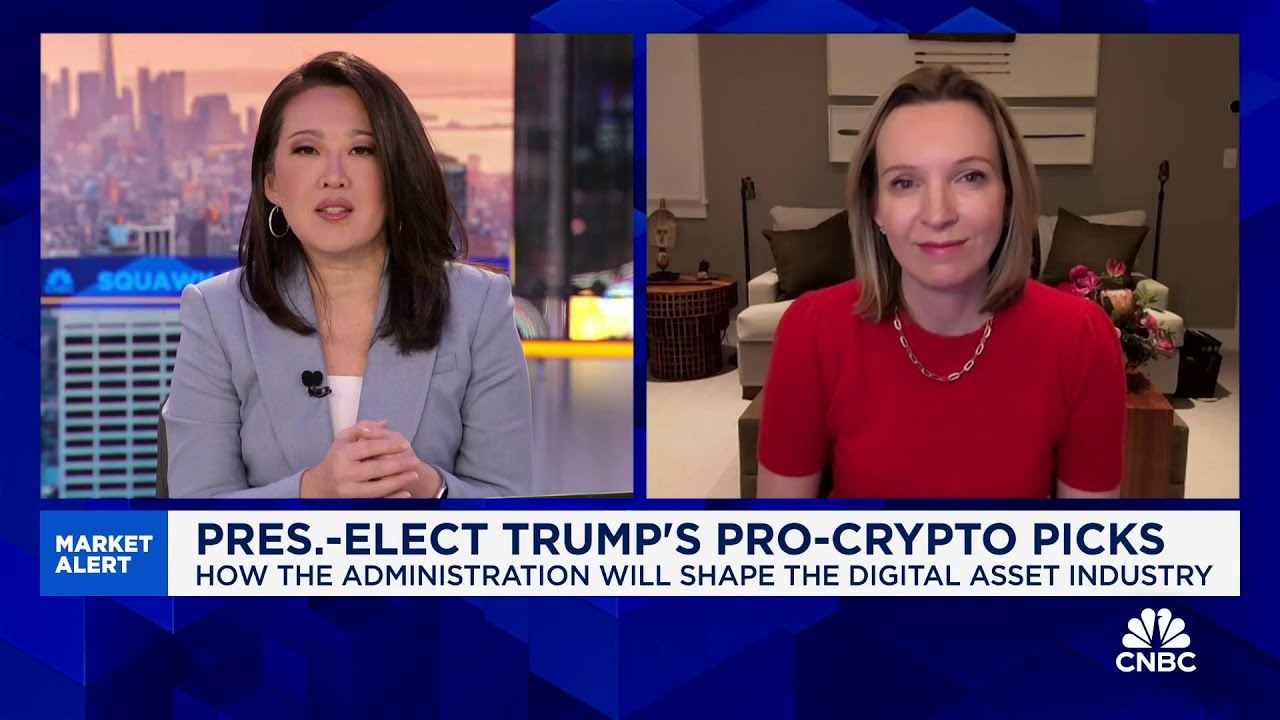Trump Administration’s Impact on Bitcoin Regulation and Growth
The world of cryptocurrency is witnessing a significant shift as President-elect Trump appoints Paul Atkins, a known supporter of digital assets, to chair the Security and Exchange Commission (SEC). This change comes after four years under Gary Gensler’s leadership, known for his stringent stance on digital currencies. With us to discuss the potential implications of this leadership change is Kristen Smith, CEO of Blockchain.
The Current State of Bitcoin Regulation
Bitcoin, often perceived as a commodity, has managed to operate somewhat outside the direct regulatory framework of the SEC. However, the lack of a comprehensive regulatory structure for exchanges and trading platforms has been a deterrent for institutional investors. Many financial institutions view the Bitcoin market as unregulated, making them hesitant to invest. A regulated market, akin to traditional financial assets, could open doors for more participants.
The Potential for Growth
Smith believes that Bitcoin’s trajectory is more likely to reach higher valuations, such as 200, before it ever considers falling back to 50. The growing interest from retail financial advisors and their clients is a strong indicator of Bitcoin’s potential growth. Additionally, several countries and U.S. states are beginning to build Bitcoin reserves, signaling a broader acceptance and interest in the digital asset.
With a supportive administration, the U.S. has the potential to become a global hub for cryptocurrency. A president who champions the industry can significantly influence its growth by fostering a regulatory environment that encourages innovation and investment.
Challenges and Risks
Despite the optimism, there are concerns about Bitcoin’s impact on the U.S. dollar. As Bitcoin gains popularity, some speculate it could challenge the dollar’s dominance. The ability of Bitcoin to bypass traditional financial systems, as seen with countries like Russia, raises questions about potential geopolitical implications.
The Role of Stablecoins
Kristen Smith highlights the importance of stablecoins, particularly those backed by the U.S. dollar. These digital currencies offer a stable value, unlike Bitcoin’s price fluctuations. Stablecoins provide global access to the U.S. dollar, enhancing its strength and influence worldwide. The focus on stablecoins could be more beneficial for the U.S. dollar than Bitcoin itself.
Opportunity for Legislative Action
The current political climate presents a unique opportunity for the crypto industry. With bipartisan support in Congress and a pro-crypto president, the industry has a rare chance to push for favorable legislation. The SEC and the Commodity Futures Trading Commission (CFTC) have the authority to advance regulatory frameworks that benefit the industry. However, action must be swift and unified to capitalize on this moment.
Establishing a Regulatory Framework
One key aspect of the desired regulatory framework is providing exchanges with a clear path to registration. Exchanges and brokers want oversight to ensure transparency and prevent conflicts of interest. This framework would apply to centralized platforms rather than decentralized finance (DeFi). Additionally, defining the classification of tokens and establishing custody rules are critical areas that require legislative clarity.
Creating a regulatory environment where exchanges can register and operate transparently will facilitate market growth and attract more participants. This step is crucial for moving the industry forward.
The Future of Bitcoin
As Bitcoin continues to gain mainstream acceptance, the question remains whether it will ever revert to significantly lower valuations. Kristen Smith believes that as more individuals and institutions allocate a portion of their portfolios to Bitcoin, its status as a mainstream asset will solidify. This shift in perception is a one-way street, suggesting that Bitcoin’s lower valuation days may be behind us.
In conclusion, the Trump administration’s approach to cryptocurrency regulation, coupled with a supportive Congress, presents a significant opportunity for the industry. However, the crypto community must act decisively and collaboratively to ensure the implementation of a robust regulatory framework that fosters growth and innovation.
Read More: Why is Market Cap IMPORTANT In Crypto? (BEST Explanation in 3 minutes read)



